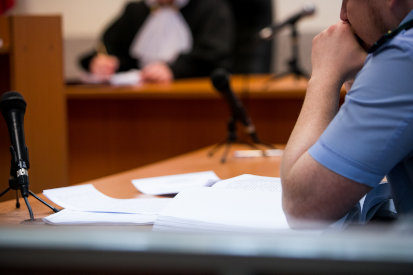
Being charged with a criminal offence or a traffic offence can be quite overwhelming. You may be confused about whether you need legal representation, what this representation involves, and how to go about finding a defence lawyer. This article will help to alleviate any confusion you may be experiencing.
What is legal representation?
A lawyer can provide a wide range of assistance, depending on your matter and the level of involvement required. For minor matters such as contesting a speeding fine, a lawyer may provide you with advice, discuss your legal options, and advise whether you should speak in court or if your lawyer should speak in court on your behalf.
For more serious offences, your lawyer will be involved in the entire process from the initial conversation to the conclusion of the matter. Your lawyer will:
- Have an initial consultation with you to hear your side of the story.
- Help develop a strategy for your case to achieve the best possible result.
- Communicate with the police, prosecution and court on your behalf.
- Analyse the charges, evidence and documents provided by the police and prosecution.
- Gather evidence by interviewing witnesses, speaking to your family/friends, consulting experts, and obtaining official records or documents.
- Appear in court to progress your matter and represent you in hearings.
A good defence lawyer will have a solid understanding of complex legislation and will be able to determine whether specific evidence is relevant or not.
Depending on the nature of the offence, you may or may not need legal representation. A sign that you will most likely need to be represented by a defence lawyer is if you have received a Court Attendance Notice (CAN).
Have you received a Court Attendance Notice (CAN)?
A Court Attendance Notice (CAN) is a formal notice from either the police or any prosecuting authority stating that you have been charged with an offence. You will also receive a CAN if you elect to contest a penalty/infringement notice (speeding fine, parking fine etc.) at court. You may either receive a CAN by mail or on the spot.
The CAN will include details of the offence/s you have been charged with, the court where your case will be heard, and the time and date of the hearing. The CAN should also be accompanied by a “facts sheet” with the police’s details of the matter.
If you have received a CAN for a criminal offence, it is important to seek legal advice. This is critical for serious crimes such as assault, theft, or sexual assault.
If you have received a CAN for electing to contest a penalty or infringement notice, you may require legal advice depending on your circumstances. If your licence has been suspended or you are facing a similar significant penalty or fine, you should speak to a lawyer for legal advice. If you have previous fines or a record of infringement, it is recommended to consult a lawyer.
If you have a clean record and are facing a minor penalty, it may not be necessary to consult a lawyer. However, if you have any accessibility or communication issues, such as having an intellectual disability, or are not a fluent English speaker, it may be helpful to consult a lawyer.
Are you facing a serious criminal offence?
You should contact a defence lawyer if you think you may be charged with a serious criminal offence such as assault or sexual assault. This will allow you and your lawyer to prepare for any charges and build a case strategy. Your lawyer will also track the status of the case and its progress in court.
It may not be necessary to reach out to a lawyer if you are facing a less serious offence such as low range drink driving or if you have received a speeding fine. However, it is recommended that you at least consult a lawyer who offers a free consultation to explore your legal options prior to being charged. The lawyer can advise if you will need representation and the likely penalties you may face.
How to access legal representation
Choosing a defence lawyer is an important decision – you need to find a lawyer who is suitable for your specific situation. Our guide to finding the best criminal lawyers in Sydney provides a useful starting point.
LawAccess NSW provides telephone service for individuals with legal problems and can refer you to other services such as Legal Aid if you are disadvantaged. You can also contact your local Legal Aid office directly for assistance.
How can we help you?
Nyman Gibson Miralis provides expert advice and representation in all criminal and traffic offences.
We offer a free consultation and can advise whether you need legal representation based on your specific situation.
Contact us if you require assistance and book a free consultation. You can also call us 24/7 on 1300 668 484.




